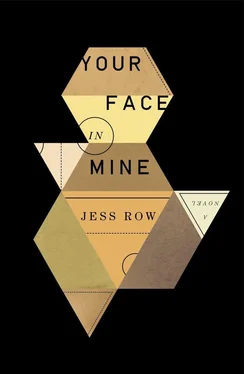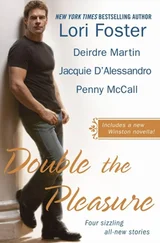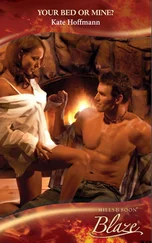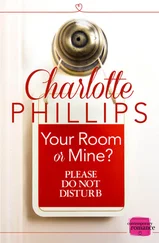The only reason to drive anywhere, Alan said, was because you’re in a hurry. Otherwise, why not walk? He hated the way I drove, not inordinately slow or careful, but sensible . Why be sensible? he wanted to know. If it’s two in the morning, and there’s no other cars in sight, why not cruise through the red light at North Charles and Northern Parkway, why not pretend, for a moment, that no red lights exist?
He had his own license for less than a month; he totaled the family Volvo in a way the mechanics said couldn’t be done, a Volvo with 270,000 miles they’d owned since 1979. Thus for more than a year — the entire touring life of L’Arc-en-Ciel — I drove him everywhere, even to school. It was that or take the bus, Cheryl said. She slipped me a twenty every week for gas money, and when I protested that I had a Texaco card, paid by my parents, she said, consider it hazard pay. Alan and I spent it on coffee, powdered donuts, and leathery slices of pizza from 7-Eleven; pizza jerky, Alan called it, and said it was his favorite food.
We argued about veganism — I was all for it, but he said it was a fool’s errand, making a fetish out of purity, as if it was possible to live like the Jains, ahimsically, in the twentieth century — and about whether one should start slow on the stereo, first thing in the morning, a little Nick Drake, maybe, or folky Neil Young, or wake up with a thunderous blast of Antischism or Bolt Thrower or Cannibal Corpse. We argued about the causes of the Civil War. We argued about whether Ian MacKaye was a better singer in Minor Threat or in Fugazi. We argued about the latest articles in The New York Times I swiped off my neighbor’s doorstep, and whether it was ethical for me to steal a newspaper, even if Mr. Macalester read only one out of three, and let them pile up in a scummy heap on the pavement. But we never argued about — never discussed — the terms, the content, the causes of our friendship. Adolescent boys hardly ever do. They pretend as if the people around them simply sprang out of the ground at random. We never said I love you , of course, though we surely did, and when we left town — for the weekend, for the summer, for rehab, for college — we never said goodbye. Not so much as a see you or talk to you then .
Why does he hang up in the middle of a sentence? people would ask me. Why does he pretend not to notice I was gone? Because he’s opposed to time, I answered, in my snarky, sixteen-year-old way. And grammar. He thinks all periods should be replaced by semicolons.
And in the end, of course, there was no period, or semicolon; there was just silence. There was just:
—
I started to worry about him only when he stopped complaining. This was the fall of our senior year, after he and Ayala broke up, after L’Arc-en-Ciel dissolved in a ranting three-day argument, in person, over the phone, via answering machine messages and scrawled notes stuffed in each other’s lockers at school. He’d been away all summer at an arts institute at Cornell — the Telluride Institute — and had returned with a dog-eared copy of John Cage’s Silence , wanting to turn L’AEC into a conceptual rock band, in which one song consisted of nothing but snare-drum beats, and another involved playing only whole-note intervals on a retuned guitar. Martin had gotten heavy into primitive rock — The Stooges, The Fugs, all the Amphetamine Reptile bands, Neanderthal, Man Is the Bastard — and had put a poster up in our practice space saying Think Smart, Play Stupid. I was where I always was: I liked chords. I liked melodies. I liked choruses. It was a nonstarter, and it was all over by the end of September, when I watched Alan eat a plateful of cafeteria chow mein without saying a word.
Cat meat got your tongue?
What? he asked. Oh, sorry. I was thinking about something else.
He had lost weight, and he couldn’t afford to; we were used to reminding him to eat, on the road and after hours of practicing, and used to making sure he’d taken his insulin and done his blood test. It was a prerequisite for being Alan’s friend; his mother, Cheryl, made sure of that. Being diabetic for so long had made him hate food, he said. It was like a malevolent force in the universe, life-giving, life-taking, capricious as the Hebrew God. I looked at him carefully, again, head to toe, and saw something on the papery underside of his right forearm that looked like a dot of blue ink.
What the fuck is that?
That? I stabbed myself with a pen by accident.
I should say, by way of explanation, that though we’d sampled our share of drugs in high school — bong hits, shrooms, black-market ephedrine, and one collective acid trip the summer we all turned sixteen — Martin and Alan and I were mostly bystanders, and in those days heroin and cocaine were all but unheard of, a relic of the Eighties, of Less Than Zero and Sid and Nancy . The theater arts building at Willow was named for Samantha Dinerstein, class of ’88, who overdosed on speedballs her freshman year at Sarah Lawrence. What instinct for self-preservation we had drew the line at snorting, shooting, and sex without a condom, or, in some cases, sex at all.
At Telluride, though, Alan was befriended by a circle of New York kids from Stuyvesant and Saint Ann’s, who were hardcore for Rimbaud, Apollinaire, Anaïs Nin, Henry Miller, Kathy Acker. They did a lot of mescaline and hash, but this guy named David kept getting these care packages from a friend in Washington Heights and then disappearing for six or eight hours at a time. Finally Alan asked David directly, and David — who had the longest lashes he’d ever seen on a boy, or boy-man, whatever seventeen-year-olds are — said, there’s really only one question. Are you in or out? And handed him a copy of De Quincey’s Confessions of an English Opium-Eater .
You have to understand, Alan told me, his eyes wide, you have to know what it’s like there. You’re going from building to building, and there’s just these miniature canyons, with bridges over them, and you could be reading and not paying attention to where you’re walking, and just like pitch into the rail and boom! You’re looking down three hundred feet into this gorge, with this tiny little creek you can hardly even see at the bottom. I mean, okay. Everybody knows that kids go to Cornell, the winter drives them crazy, and they jump into the gorges. But it’s not like you have to seek them out . It’s more like Camus: every day you have to come up with a reason not to jump. Look, this is what David said to me: the question is why I’m doing it. The question is, why aren’t you? If somebody said you could sit at the table with Jesus at the last supper, wouldn’t you? If somebody told you you could sit at Buddha’s feet in Sarnath, wouldn’t you? What if you could talk to a rock in its own language? What if you could become a cloud? What if you could be whatever you wanted ? What if you had eyes in your kneecaps, your armpits, the crooks of your elbows? What if you had eyes in the soles of your feet that could stare down into the earth’s magnetic core? And look, I just thought, this kid is a fucking lunatic, but then that same night I was reading the Critique of Judgment , about the aesthetic sublime, and I realized, holy shit, Kant is talking about exactly the same thing. It just all came together. David kept saying, the greatest gift is to take life out of your body and give it back to your body. That’s what heroin is. Death in life. And you know what? He wasn’t lying. Can you understand how rare that is, for someone to tell you something that’s one hundred percent the truth?
Are you saying the rest of us are lying?
Читать дальше












